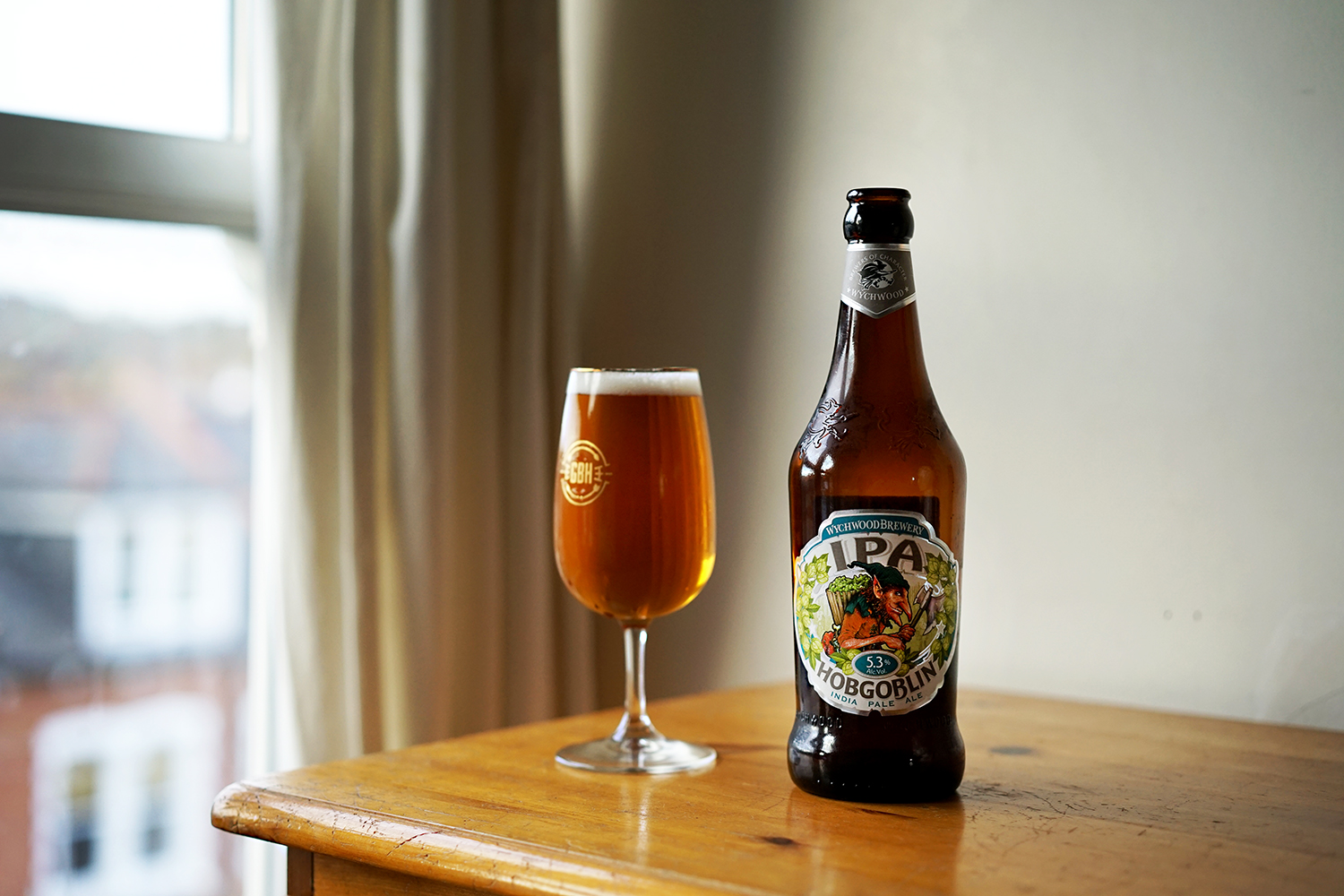Hobgoblin, a 5.2%, traditional ruby red ale produced by the Marston’s owned Wychwood Brewery, is the kind of British beer that’s ubiquitous with traditional UK beer culture. Unusually for a traditional British beer however, Hobgoblin has a remarkably hardcore fanbase.
The beer’s fans—and these folks truly are dedicated—have more in common with the likes of Iron Maiden followers than beer drinkers. In fact, there’s little coincidence that Hobgoblin t-shirt wearers are just as visible at metal concerts as they are at CAMRA-organised beer festivals. In that respect they are also more often than not white men of a certain age and demographic.
In a way, they’re a lot like modern craft beer fans, only potentially even more dedicated. The official Hobgoblin Facebook page is remarkable in that it’s the official page of Wychwood Brewery, yet it is named after the beer, rather than the brewery itself—all at once demonstrating how significant its flagship brand is. What’s also remarkable is that it has almost 220,000 followers. Significantly more than Cloudwater at a measly 15,000, or Beavertown at just shy of 34,000.
The beer itself is the second best selling “premium bottled ale” (whatever that is) in the UK, though that growth is perhaps beginning to stagnate a little. The UK is falling out with Red Ales, plain and simple. In 2014 Wychwood launched Hobgoblin Gold, essentially a lighter coloured version of the same beer that immediately entered the top 20 of the “premium bottled ale” category and is still experiencing growth.
Not enough though, evidently, as Wychwood has added another string to the Hobgoblin bow by finally entering the modern IPA category. Why Wychwood has waited this long to join the IPA party is a little curious, until you dig a little deeper, that is.
A press release was supplied to me along with two sample bottles of the beer that was, for some reason, sent inside an actual wooden chest filled with shredded green paper and a not inexpensive Spiegelau IPA glass. It accurately states that IPA is indeed the most recognized beer style in the UK and that it’s experiencing 33% MAT growth. It also, curiously, makes a point of announcing that the IPA customer is more likely to be both younger and female.
However, I doubt that Hobgoblin IPA will do anything to bolster the brands reputation within this particular demographic. Especially considering that the brewery’s repertoire also features beers such as The Dog's Bollocks, which describes itself as “big, round and fruity,” (seriously, the artwork has to be seen to be believed) and once included a beer called Bountiful which depicted a woman suggestively holding fruit on its label (again, seriously).
This is especially true when you consider that the packaging and branding for Hobgoblin IPA is exactly the same as the original, save for a few extra hops adorning the label. It’s a design that arguably appeals to very few outside of its, admittedly large, fan base and not the demographic referenced by the press release.
And what about the beer itself? Weighing in at 5.3% ABV the label states that the beer is brewed with Fuggles, Goldings and Styrian hops and then “amped up” (their own words) with “mighty American hops.” Thanks to the press release I know that these hops are Mosaic, Chinook, Centennial and Citra. All sounds good so far, then.
It pours a crystal clear shade of gold, the head of white foam retreating to the edge of the glass disappointing quickly. There’s little aroma to speak off, save for a maybe a whisper of cut grass and golden syrup. It’s way off the “explosion of tropical aroma” promised by the label but I was still hoping that upon tasting I might get some of the “tropical citrus and fresh orange flavours” mentioned in the release.
Sadly, this wasn’t the case. The beer is perfectly drinkable, but there’s little in the way of flavour here at all. It’s body is pretty robust, much like regular Hobgoblin, in fact it tastes perhaps reassuringly similar to the original. Except without the heft of darker malts it quickly becomes flat and grainy, with maybe just a whisper of orange in the finish. But I stress it’s just the faintest of whispers.
The beer will be listed by three major UK supermarket chains: Asda, Morrison’s and the Co-Op. Although, as clearly stated by the release, it aims to reach a younger, wider demographic, it will have to compete against an increasingly large array of vibrantly coloured bottles and cans filled with bright, flavourful beer. If the target market is faced with a selection that includes this alongside beers including Northern Monk’s New World IPA or BrewDog’s grapefruit-infused Elvis Juice, I doubt it’ll find much favour.
As an answer to the growing IPA craze in the UK, this is a poor one. In a market of increasingly creative and flavourful beers, this one will fall flat in its attempt to reach a new audience. Thankfully, however, it’s a beer that has a legion of loyal Hobgoblin fans to fall back on. Which is especially true considering that even ardent fans of the original still prefer pale beers to their darker counterparts. This alone should ensure Wychwood continue to see healthy growth within the “premium bottled ale” category. For now, at least.

